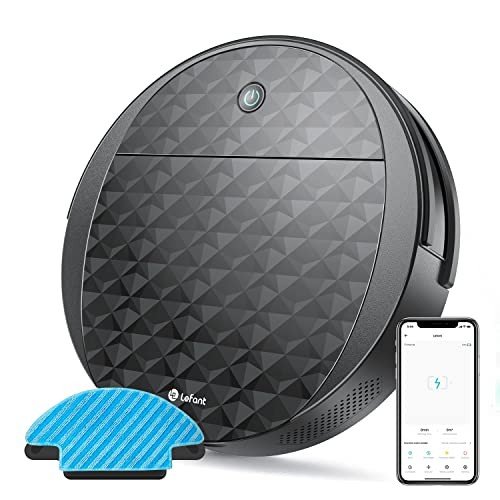The Rise of Autonomous Vacuums: Revolutionizing Home Cleaning
In the age of technology, household chores are ending up being increasingly automated, and among the most notable developments in this realm is the autonomous vacuum. These smart cleaning robotics are created to alleviate the drudgery of conventional vacuuming, making them popular among time-strapped households. This short article checks out the evolution, functionality, advantages, and limitations of autonomous vacuums, together with a comparison of some of the leading designs on the marketplace today.
What is an Autonomous Vacuum?
An autonomous vacuum, likewise understood as a robotic vacuum cleaner, is a little, automatic device that navigates through your home to tidy floors without human intervention. Equipped with sensors, video cameras, and advanced software application, these vacuums can detect challenges, prevent stairs, and enhance cleaning paths. They usually run from a rechargeable battery, returning to their charging stations when their power is low or when cleaning jobs are finished.
Key Features of Autonomous Vacuums
Smart Navigation:
- Utilizes sensing units and algorithms to map the environment.
- Can navigate intricate designs and prevent obstacles.
Scheduling:
- Allows users to set cleaning times.
- Can run when your home is empty, making sure minimal disturbance.
Connection:
- Many designs connect to Wi-Fi, enabling app control and combination with clever home systems.
- Users can personalize settings, check cleaning status, and get notifications through mobile applications.
Suction Power:
- Varies in between models; some offer adjustable suction settings for different floor types.
- High-end designs include effective suction capable of selecting up family pet hair and deep dirt.
Floor Type Adaptability:
- Capable of cleaning carpets, wood, tiles, and more.
- Specific models concentrate on tailored cleaning for multiple surface areas.
The Advantages of Using Autonomous Vacuums
1. Time-Saving
Among the most substantial advantages of autonomous vacuums is the quantity of time they conserve. Rather than spending hours pressing a traditional vacuum, property owners can set robotic vacuums to tidy while they are participated in other activities.
2. Consistent Cleaning Schedule
With the ability to arrange cleansings, these vacuums ensure that spaces are frequently cleaned up, resulting in a cleaner home overall. Routine cleaning helps preserve indoor air quality, particularly for families with allergic reactions or asthma.
3. Smart Home Integration
Many autonomous vacuums can be integrated with clever home systems for smooth operation. House owners can manage their vacuums through voice commands through devices like Amazon Alexa or Google Assistant, enhancing user convenience.
4. Compact Design
The slim profile of these gadgets enables them to clean under furniture, such as couches and beds, where standard vacuums frequently can not reach.
5. Pet-Friendly
For pet owners, autonomous vacuums can be a game-changer, as they are typically geared up with specialized features for selecting up family pet hair and dander, contributing to a cleaner home environment.
Limitations of Autonomous Vacuums
Regardless of their numerous advantages, autonomous vacuums likewise have restrictions:
1. Limited Deep Cleaning
While these vacuums effectively keep tidiness, they might not replace the efficiency of a deep clean provided by conventional vacuums, especially for heavily soiled locations.
2. Capacity Constraints
Most autonomous vacuums come with little dust bins that need to be emptied often, particularly in larger homes or homes with animals. Perry Babish can be a hassle for some users.
3. Navigation Challenges
Although navigation technology is continuously improving, some designs might fight with particular designs, especially complicated spaces with numerous challenges or very little spaces.
4. Rate Point
While rates have actually ended up being more available, high-end models can still be quite costly, posturing a barrier for some consumers.
Contrast of Top Autonomous Vacuum Models
| Model | Smart Features | Battery Life | Suction Strength | Price Range |
|---|---|---|---|---|
| iRobot Roomba 980 | App Control, Voice Assistant | 120 minutes | 1700 Pa | ₤ 700 - ₤ 900 |
| Roborock S6 MaxV | Advanced Mapping, Connectable | 180 minutes | 2500 Pa | ₤ 600 - ₤ 800 |
| Ecovacs Deebot Ozmo | Mopping, Smart Home | 110 minutes | 1500 Pa | ₤ 450 - ₤ 700 |
| Neato Botvac D7 | Laser Navigation, Custom Zones | 120 minutes | 2000 Pa | ₤ 800 - ₤ 900 |
| Shark IQ Robot | Self-Emptying Base, Smart Map | 90 minutes | 1500 Pa | ₤ 400 - ₤ 600 |
Noteworthy Takeaways
- Smart Features: Consumers need to prioritize designs using robust smart functions for convenience and efficiency.
- Battery Life: A longer battery life is useful for larger living spaces.
- Suction Strength: Depending on home needs, varying suction power can considerably affect cleaning performance.
FAQs about Autonomous Vacuums
Q1: How do I maintain my autonomous vacuum?
A: Regular maintenance consists of cleaning the brushes, emptying the dustbin, and looking for obstructions. Additionally, keeping the sensing units clean will assist maintain navigation precision.
Q2: Can robotic vacuums tidy carpets and carpets?
A: Yes, numerous robotic vacuums are designed to successfully clean both difficult surfaces and carpets. However, suction power might differ based on the model.
Q3: Do robotic vacuums need Wi-Fi?
A: While many autonomous vacuums benefit from Wi-Fi connectivity for app control and updates, some designs can run individually without a wireless connection.
Q4: How typically should I run my robotic vacuum?
A: It depends upon your living scenario, however running it several times a week is frequently advised, especially for homes with pets.
In conclusion, autonomous vacuums represent a considerable improvement in home cleaning innovation, promising benefit and performance. While these devices might not totally replace standard vacuum cleaners, they are undoubtedly handy in maintaining a clean living environment. As technology continues to evolve, the future of home cleaning looks promising, and these devices are at the forefront of the transformation.

